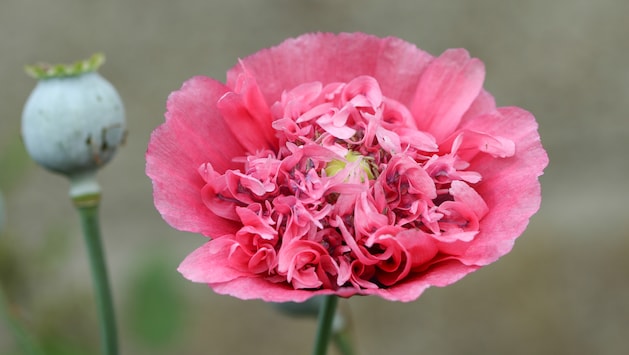If you like to grow plants in your garden, there are a few things you should keep in mind. Some plants are even forbidden to grow in the garden. Read here in which cases you could even face imprisonment.
In addition to culinary herbs and vegetable plants, colorful, visually striking flowers are also particularly popular with botany fans. However, if you want to beautify your own garden, you should find out in advance how the cultivation of certain plants is regulated by law.
Hobby gardeners who have this plant in their garden face up to five years in prison.
The long-stemmed plant with the bright red flowers we are talking about is called the opium poppy. The Narcotics Act (BtMG) prohibits their cultivation. In 2021, the opium poppy was even named poisonous plant of the year.
Most people know poppy seeds from the bakery. Whether on a Sunday roll or in poppy seed striezel – the small black seeds are very popular in baking. But poppy seeds are not only found on bread, rolls and cakes. Parts of the plant are also used to make powerful medicines and even drugs.
In addition to the black seeds, which are used in the food industry, a crucial part of the opium poppy plant is the milky sap contained in the seed capsules. Depending on the variety, this contains a lot of morphine.
In addition to the strong painkiller morphine, the dried milky juice can also be used to produce raw opium, which forms the basis of certain intoxicants, such as heroin.
That’s why the cultivation of opium poppies is punishable. There is a risk of a fine or even up to five years in prison. There are exceptions for varieties that are particularly low in opium – but a special permit is required for this.
It would therefore be easier to switch to a low-morphine alternative. So if you want to look at the beautiful flowers in your garden every day, you should choose the corn poppy. This shines in just as bright colors as its close relative, but is only slightly poisonous and therefore not prohibited by the Narcotics Act.
The original for this article “You should not grow this plant in your garden” comes from chip.de.















